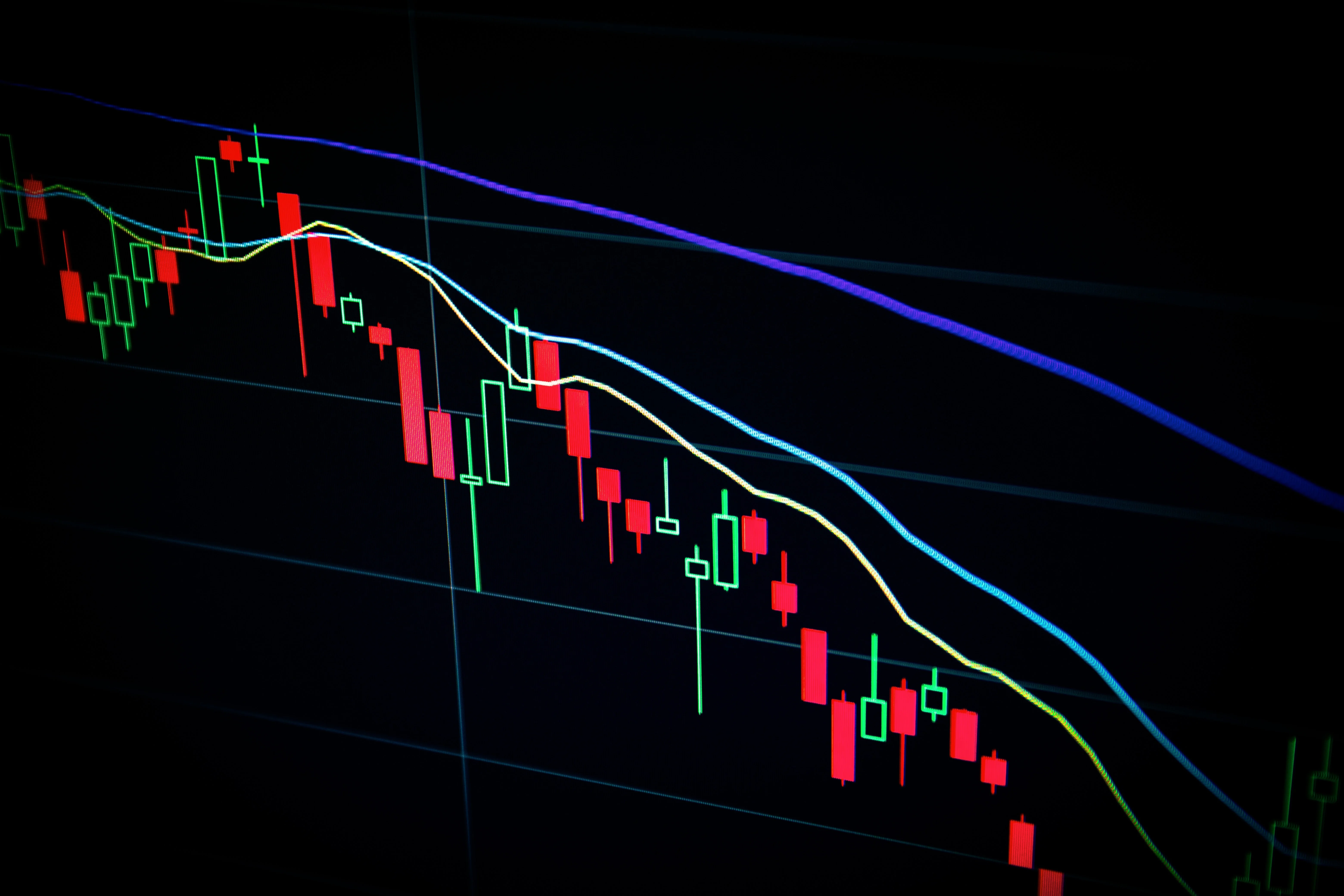## Introduction
In the world of cryptocurrencies, exchanges serve as the primary platforms for buying, selling, and trading digital assets. While centralized exchanges have long dominated the landscape, decentralized exchanges (DEXs) have gained significant traction in recent years. In this article, we will explore the concept of decentralized exchanges, how they work, their benefits, popular DEXs in the market, considerations for using them, and the future of decentralized exchanges. Please note that this article provides educational information and not investment advice. Always do your own research.
## Understanding Centralized and Decentralized Exchanges
To understand decentralized exchanges, it's important to differentiate them from their centralized counterparts. Centralized exchanges (CEXs) operate as intermediaries, where users deposit their funds and rely on the exchange to facilitate transactions. These exchanges hold users' assets in custodial wallets and execute trades on their behalf. While centralized exchanges offer convenience and liquidity, they also introduce risks such as custodial control over funds and potential vulnerabilities to hacks or breaches.
On the other hand, decentralized exchanges operate on the principles of blockchain technology, allowing users to trade directly with each other without the need for intermediaries. By leveraging smart contracts and decentralized order books, DEXs provide a trustless environment where users retain control of their assets and execute peer-to-peer transactions.
## How Decentralized Exchanges Work
Decentralized exchanges employ various mechanisms to facilitate peer-to-peer trading without intermediaries. Let's explore how they operate:
### Peer-to-peer trading without intermediaries
In a decentralized exchange, users interact directly with smart contracts deployed on a blockchain network. These smart contracts act as automated protocols that facilitate the exchange of digital assets. Instead of depositing funds into a centralized exchange's wallet, users retain ownership and control of their assets in their personal wallets, connecting them to the decentralized exchange's interface.
### Smart contracts and automated processes
Smart contracts play a pivotal role in decentralized exchanges. They contain the rules and conditions of the exchange, including the price, quantity, and terms of the trade. Once a user
initiates a trade, the smart contract automatically executes the transaction, transferring the assets between the parties involved. This automation ensures the integrity and efficiency of the trading process.
### Decentralized order books and liquidity pools
Decentralized exchanges utilize order books and liquidity pools to match buyers and sellers. Order books contain a record of buy and sell orders, allowing users to find suitable trading pairs and execute trades at desired prices. Liquidity pools, on the other hand, enable users to contribute their assets to a pool that serves as a source of liquidity for trading. This allows for seamless trading experiences and reduces reliance on external liquidity providers.
## Benefits of Decentralized Exchanges
Decentralized exchanges offer several advantages over their centralized counterparts. Let's explore some of the key benefits:
### Enhanced privacy and security
Decentralized exchanges prioritize user privacy and security. As users retain control of their assets in their personal wallets, they eliminate the need to trust a centralized exchange with their funds. Additionally, decentralized exchanges minimize the risk of data breaches or hacks since they do not store users' sensitive information or control their assets.
### Removing the need for intermediaries
By eliminating intermediaries, decentralized exchanges empower users to have full control over their assets and execute peer-to-peer transactions directly. This reduces reliance on centralized entities, lowers transaction costs, and enables more efficient and transparent trading experiences.
### Global accessibility and censorship resistance
Decentralized exchanges are accessible to users globally, irrespective of geographical boundaries or regulatory restrictions. As long as users have an internet connection and a compatible wallet, they can participate in decentralized trading. This provides financial inclusion and empowers individuals who may not have access to traditional banking systems.
## Popular Decentralized Exchanges
Several decentralized exchanges have gained prominence in the DeFi space. Let's take a look at some of the popular ones:
### Uniswap: Revolutionizing decentralized trading
Uniswap is one of the most widely recognized and utilized decentralized exchanges built on the Ethereum blockchain. It introduced the concept of automated market-making (AMM), where liquidity providers contribute assets to liquidity pools and earn passive income from trading fees. Uniswap's simple and user-friendly interface has contributed to its widespread adoption and liquidity.
### SushiSwap: A community-driven exchange
SushiSwap emerged as a fork of Uniswap, aiming to create a community-driven and sustainable decentralized exchange. It introduced innovative features such as yield farming and incentivized users through its native token, SUSHI. SushiSwap demonstrates the power of community governance and collective decision-making within the DeFi ecosystem.
### PancakeSwap: The leading DEX on Binance Smart Chain
PancakeSwap is a decentralized exchange built on the Binance Smart Chain (BSC). It offers similar functionalities to Uniswap but operates on the BSC network, which provides faster and cheaper transactions compared to Ethereum. PancakeSwap has gained popularity among users seeking lower transaction fees and a seamless trading experience.
## Considerations for Using Decentralized Exchanges
While decentralized exchanges offer numerous advantages, there are some considerations to keep in mind before engaging with them:
### Understanding impermanent loss
LPs suffer from impermanent loss when the price of the assets they have supplied to a pool decorrelate. The problem arises because of pool imbalances due to arbitrage trading. As a consequence, LPs are worse off supplying liquidity to a pool relative to the HODL strategy.
### Gas fees and transaction costs
Decentralized exchanges operating on blockchain networks, especially Ethereum, are subject to gas fees, which are transaction costs paid to miners for processing and validating transactions. Gas fees can vary significantly depending on network congestion and the complexity of the transaction. It's essential to consider these costs, especially for smaller trades, as they can impact the profitability of trading activities.
### Assessing the risks of smart contract vulnerabilities
While smart contracts provide automation and efficiency, they are not immune to vulnerabilities. It's crucial to assess the security measures implemented by decentralized exchanges and conduct due diligence on the smart contracts being utilized. Additionally, consider the track record and community trust in the project before engaging in significant trading activities.
## The Future of Decentralized Exchanges
Decentralized exchanges continue to evolve, driven by ongoing research and development efforts. Here are some areas shaping the future of decentralized exchanges:
### Scalability challenges and potential solutions
Scalability has been a significant challenge for decentralized exchanges, especially those operating on the Ethereum network. As the demand for decentralized trading increases, addressing scalability concerns becomes crucial. Layer 2 solutions like rollups and sidechains, as well as the anticipated Ethereum 2.0 upgrade, aim to enhance the scalability of decentralized exchanges and provide faster and cheaper transactions.
### Integration with layer 2 solutions
Layer 2 solutions, such as Optimistic Rollups and zk-rollups, offer promising scalability solutions for decentralized exchanges. These layer 2 protocols enable transactions to be processed off-chain while maintaining the security guarantees of the underlying blockchain. Integrating decentralized exchanges with layer 2 solutions can significantly improve transaction throughput and reduce gas fees.
### DeFi interoperability and cross-chain exchanges
The interoperability of different DeFi protocols and blockchains is gaining attention. Efforts are underway to enable seamless asset transfers and trading experiences across multiple chains, allowing users to access a wider range of assets and liquidity. Cross-chain decentralized exchanges aim to bridge the gap between different blockchain networks and foster interoperability within the DeFi ecosystem.
## Conclusion
Decentralized exchanges have emerged as a disruptive force in the cryptocurrency ecosystem, offering users greater control, privacy, and accessibility to the world of digital asset trading. By leveraging blockchain technology and smart contracts, DEXs enable peer-to-peer transactions without the need for intermediaries. While decentralized exchanges come with considerations such as impermanent loss and gas fees, they offer benefits like enhanced security, global accessibility, and community-driven governance. As the DeFi space continues to evolve, decentralized exchanges are poised to play a crucial role in reshaping the future of finance.
## FAQs
1. **How are decentralized exchanges different from centralized exchanges?**
- Centralized exchanges operate as intermediaries, holding users' funds and executing trades on their behalf. Decentralized exchanges, on the other hand, enable peer-to-peer trading without intermediaries by leveraging smart contracts and blockchain technology. Users have full control over their assets and trade directly with others.
2. **Are decentralized exchanges safer than centralized exchanges?**
- Decentralized exchanges prioritize user privacy and security by eliminating the need to trust a centralized entity with funds. However, decentralized exchanges can still have vulnerabilities, such as smart contract risks. It's crucial to conduct proper due diligence and assess the security measures implemented by each decentralized exchange.
3. **Can I trade all types of cryptocurrencies on decentralized exchanges?**
- Decentralized exchanges primarily support cryptocurrencies built on the blockchain network they operate on. However, with the rise of cross-chain solutions, the ability to trade across different blockchains is increasing. It's important to check the supported assets and trading pairs of each decentralized exchange.
4. **What is impermanent loss in decentralized exchanges?**
- Impermanent loss is a temporary loss experienced by liquidity providers in decentralized exchanges. It occurs when the value of the assets provided fluctuates compared to simply holding them. Impermanent loss is a result of the dynamic pricing in automated market-making protocols.
5. **What is the role of liquidity providers in decentralized exchanges?**
- Liquidity providers play a crucial role in decentralized exchanges by contributing their assets to liquidity pools. These pools provide the liquidity required for trading on decentralized exchanges. In return, liquidity providers earn trading fees and, in some cases, additional rewards in the form of tokens.


